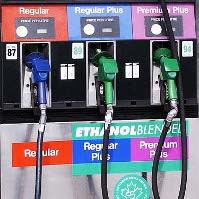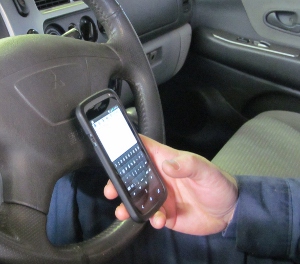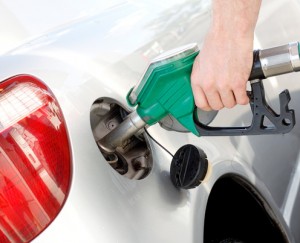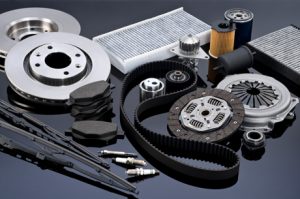 It’s always exciting to get a new car – even when it’s used. But it can also feel like you’re going out on a limb a bit when you’re buying a used vehicle. I mean, people have a lot of reasons for selling their vehicles. Maybe they just wanted a new car, or maybe there was something that they personally didn’t like about the car. But then again, maybe there was something wrong with it or maybe there’s something really wrong with it.
It’s always exciting to get a new car – even when it’s used. But it can also feel like you’re going out on a limb a bit when you’re buying a used vehicle. I mean, people have a lot of reasons for selling their vehicles. Maybe they just wanted a new car, or maybe there was something that they personally didn’t like about the car. But then again, maybe there was something wrong with it or maybe there’s something really wrong with it.
It’s a great idea to order a report from a vehicle history service. This can uncover title problems and may reveal any serious accidents or flood damage as well as any recall notices for the vehicle. Maintenance and repair records are a plus, but most sellers don’t have them.
Of course the best idea is to get a professional to perform a used vehicle inspection. The inspection will go much deeper than just how good the vehicle looks and drives. You’ll get a feel for the vehicle’s overall condition, the status of major safety systems and an indication of how well it has been maintained. You’ll get a good idea of any work that needs to be done – and that will help you determine an appropriate value for the vehicle and whether or not it’s worth purchasing.
It’s pretty easy to see how a used vehicle inspection is worth the cost. If problems are uncovered, you can either steer clear of the vehicle or bargain for a better price. If everything is OK, you’ll have a plan for addressing any routine services that should be done, as well as a whole lot of peace of mind.
It’s easy to fall in love with a vehicle – just don’t let your excitement cloud your judgment. Bring the car in and have us perform a used vehicle inspection so that you’ll know if you’re getting a peach, or a lemon.

 Let’s talk about safe towing for drivers. Too often many drivers will just slap a trailer on the hitch and take off. But there are safety considerations to protect your tow vehicle, comply with Colorado laws and limit your liability.
Let’s talk about safe towing for drivers. Too often many drivers will just slap a trailer on the hitch and take off. But there are safety considerations to protect your tow vehicle, comply with Colorado laws and limit your liability. High gas prices have hit most of our budgets in the Denver area. If increased fuel costs are consuming a bigger portion of your budget, you may be tempted to skimp in some other areas – like scheduled maintenance at Express Car Care.
High gas prices have hit most of our budgets in the Denver area. If increased fuel costs are consuming a bigger portion of your budget, you may be tempted to skimp in some other areas – like scheduled maintenance at Express Car Care. When asked, most people think they are good at multi-tasking. Scientific studies, however reveal that only around 2% of the population can truly demonstrate the capacity to effectively multi-task. For the rest of us who are not so biologically wired, no amount of practice can increase our effectiveness at multi-tasking. Turns out, multi-tasking is almost a superpower. Think of fighter pilots: capable of maintaining their orientation in three dimensional space and performing specific and highly complicated functions while accessing life threatening situations and coming up with an appropriate response. Admit it – you can’t do that.
When asked, most people think they are good at multi-tasking. Scientific studies, however reveal that only around 2% of the population can truly demonstrate the capacity to effectively multi-task. For the rest of us who are not so biologically wired, no amount of practice can increase our effectiveness at multi-tasking. Turns out, multi-tasking is almost a superpower. Think of fighter pilots: capable of maintaining their orientation in three dimensional space and performing specific and highly complicated functions while accessing life threatening situations and coming up with an appropriate response. Admit it – you can’t do that. All new cars and light trucks in Denver since 2008 have come equipped with a tire pressure monitoring system, or TPMS. The tire pressure monitoring system detects when a tire becomes under-inflated and lights up a warning light on the dashboard.
All new cars and light trucks in Denver since 2008 have come equipped with a tire pressure monitoring system, or TPMS. The tire pressure monitoring system detects when a tire becomes under-inflated and lights up a warning light on the dashboard. After a recent experience of driving on hazardous roads with dangerous drivers I think it’s a good idea to share this article from AAA written by J. Skyler McKinley
After a recent experience of driving on hazardous roads with dangerous drivers I think it’s a good idea to share this article from AAA written by J. Skyler McKinley A lot of gas is wasted by Denver vehicles with dirty fuel delivery systems. Let’s start at the tank. The gas tank gathers tiny amounts of dirt, rust and sediment over the years of driving around. That’s why there’s a fuel filter to clean the fuel after it leaves the tank. A dirty filter will rob the engine of the clean gas it needs to run efficiently.
A lot of gas is wasted by Denver vehicles with dirty fuel delivery systems. Let’s start at the tank. The gas tank gathers tiny amounts of dirt, rust and sediment over the years of driving around. That’s why there’s a fuel filter to clean the fuel after it leaves the tank. A dirty filter will rob the engine of the clean gas it needs to run efficiently. Let me tell you about an experience that took place at a well-established Italian restaurant that had changed hands a few months ago. The previous owners were an Italian couple that used old family recipes and fresh ingredients to make their pasta and sauces from scratch. They enjoyed stellar reviews for decades.
Let me tell you about an experience that took place at a well-established Italian restaurant that had changed hands a few months ago. The previous owners were an Italian couple that used old family recipes and fresh ingredients to make their pasta and sauces from scratch. They enjoyed stellar reviews for decades. Many of our customers would like to know how they can improve their fuel economy. At Express Car Care, we help drivers keep their vehicles running in prime condition which makes them more efficient fuel-wise. When your car works the way it was designed to work, it will use less fuel and you save money.
Many of our customers would like to know how they can improve their fuel economy. At Express Car Care, we help drivers keep their vehicles running in prime condition which makes them more efficient fuel-wise. When your car works the way it was designed to work, it will use less fuel and you save money.